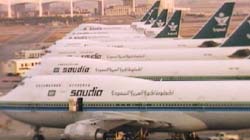 |  | ||||||
| |||||||
Can America still count on one of its most important allies in the Arab world -- Saudi Arabia? Or does an undercurrent of militant Islamic fundamentalism threaten the stability of both Saudi Arabia and the entire region? FRONTLINE and The New York Times explore these and other questions in "Saudi Time Bomb?" Through interviews with U.S. and Saudi officials, political analysts, religious experts, and observers, this report outlines the history of U.S.-Saudi relations, the internal problems and contradictions within Saudi society, the growing Islamic fundamentalist movement that threatens Saudi Arabia's stability, and the troubling connections between Saudi Arabia and some Islamic religious schools, or "madrassas," which propagate an extreme form of Islam, known as Wahhabism, throughout the Muslim world. "Saudi Time Bomb?" explores how Wahhabism is one of the undercurrents of Islamic extremism. This form of Islam, rooted in Saudi Arabia, is based on a particularly austere, literal interpretation of the Koran. (Critics say that Wahhabism's rigidity makes it open to misinterpretation and distortion.) Observers say some madrassas -- though intended to spread literacy among underprivileged youth through study of the Koran -- have evolved into Wahhabi schools that use the Koran to justify waging war against non-believers. FRONTLINE chronicles how these madrassas grew into the thousands during the ten-year Afghan war against the Soviets. And how -- because of the nature of that war -- the madrassas, most notably in Pakistan, became training centers for jihad. "They were recruiting, organizing schools which used Islamic ideology as a way of creating a very efficient guerrilla army," says Vali Nasr, an authority on Islamic fundamentalism. "You have the whole rise, if you would, of Islamic West Points." Exploring the far-flung influence of Wahhabism, FRONTLINE tells the story of an impoverished boy from the Comoros Islands, Haroun Fazul. Schooled by a Wahhabi cleric at a madrassa, he received a scholarship to study at a Wahhabi madrassa in Pakistan, and from there went on to join Al Qaeda in Afghanistan. In 1998, he bombed the U.S. embassy in Nairobi, Kenya. This report also examines the role of Saudi charities in funding some of these madrassas; the Wahhabi sect's close ties to the Taliban, many of whom were educated in Saudi-financed madrassas in Pakistan; and the current tensions between the U.S. and Saudi Arabia arising from the kingdom's seeming reluctance to cooperate in the war on terrorism. In his interview with FRONTLINE in late September, the Saudi ambassador to the United States, Prince Bandar bin Sultan, maintained that the kingdom's relationship with the United States remains strong. Yet former National Security Adviser Brent Scowcroft concedes that there is much resentment among Saudis and other Arabs over America's strong support of Israel. And U.S. policymakers say there is also lingering resentment over the presence of U.S. troops stationed in Saudi Arabia. But both Scowcroft and former Secretary of State James Baker maintain that America's Saudi-based troops are necessary to protect the region and its vast reserves of oil, on which the United States economy depends.
home · introduction · interviews · analyses · haroun fazul · chronology photo copyright © afp/corbis | |||||||

